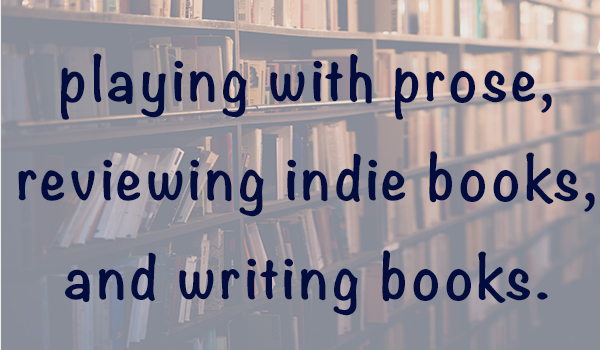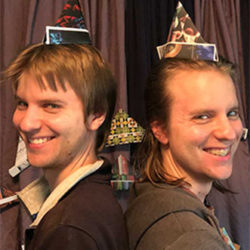
Blog 66: Break the Chains
Blog 66
Hello everybody, today we have a sci-fi dystopian piece titled March 1st 2059 by Lorenisoneofmynames from Writing.com.
Paragraph 1
February 1st, 2056
My bare feet slap the street as I run, little pebbles and jagged bits of trash slicing into the flesh. Why am I barefoot? I remember putting shoes on. Wait.
This is a solid opening paragraph, the first sentence introduces the reader to the narrative with action that implies story; the fact that she’s running implies peril or desperation (typically story/interest rich elements.) A secondary layer to this is how the first sentence also provides tactile description, our MC isn’t just running barefoot, her feet are being cut by trash and pebbles, and these are sensations the readers have most likely felt before; this makes the description tangible to them and invests them in the story more because they can feel what the character is feeling. It’s also just another dimension of description, which is generally nice. The subsequent two sentences build on this introduction by adding perception conflict; somethings off with the character, somethings wrong with their memories or their reality that they don’t understand yet. This isn’t loud or immediately exciting, but it does pique the interest as to what’s actually going on and teases me with potential story.
From a technical side there’s nothing I can see to really improve on. That’s not to say the prose is perfect, just that any change I might make would sacrifice something. For instance ’trash’ is ultimately vague since it covers a huge swath of potential items from paper refuse to plastic or metal or glass. Expanding upon what ‘trash’ entails would provide benefits to the narrative, adding to the visuals of the scene and specifying what exactly cut our MC. But that expansion would slow down the narrative pacing, bloating it and distracting slightly from the actual narrative impetus, our MC’s peril and flight. The slow down incurred by the additional words would also dilute the tension subtly, because instead of the narrative rushing forward in time with the events it’s meandering, pausing to exposit and paint the environment.
Another potential change/flaw would concern ‘bare feet slap the street’. It’s a subtle thing but the bare feet don’t interact with the street in a meaningful way. The fact that she’s barefoot doesn’t matter because she’s on the street, it matters because the pebbles and the trash cut her skin. They’re included here, but they don’t provide any particular value at the cost of some energy from the sentence. ‘Run’ is the defining action, but the inclusion of the bare feet regulate it to an adjective, which saps it of some immediacy and force. A more immediately forceful composition might look something like…
—I pelt down the street, little pebbles and jagged bits of trash slicing into the flesh of my bare feet.—
This is a more active opening structure, and by moving ‘bare feet’ to where it’s interacting with the description most significantly we could actually justify deleting ‘the flesh of’ as understood, tightening the prose and resulting in a slightly more frantic feeling. (I’m actually starting to like this edit.) The other notable change I made was (initially) converting ‘run’ to ‘sprint’. ‘Sprint’ is more all-out and specific whereas ‘run’ has multiple different potential speeds, but then I realized I could use ‘pelt’ which has all the same benefits while also being less commonplace than ‘sprint’ without sacrificing any comprehensibility, and thus adds a bit of novelty to the sentence. (Word variety both in your own writing and from common parlance is a good way to keep prose fresh. Just don’t sacrifice legibility.)
Something else I can suggest changing is the deleting of ‘little’ since that’s largely included in ‘pebbles’.
These changes result in something like…
—I pelt down the street, pebbles and jagged bits of trash slicing into my bare feet. Why am I barefoot? I remember putting shoes on. Wait. —
The problem with this composition is that it moves a bit too fast, feeling rushed from the opening sentence to the second. We could resolve this by moving the ‘wait’ to follow the first sentence since it works well there (The fact that it immediately follows the mention of her bare feet, which is the source of her memory conflict, works narratively and disrupts the rushed flow while as transitioning into her questioning why she’s barefoot.) Currently, it works as a transition to the next paragraph, but I don’t think it’s needed.
(I slide to a halt, wincing as the road grates on the soles of my feet. I look down at my feet, confused. No, I did have on shoes. And the thing I was running from, or to, what was it again? C’mon Nat, try to remember.)
I think the conflict of between what she remembers and her reality functions just effectively as a reason for her to stop, and that the ‘wait’ would carry over even if moved.
—I pelt down the street, pebbles and jagged bits of trash slicing into my bare feet. Wait. Why am I barefoot? I remember putting shoes on. I slide to a halt, wincing as the road grates on the soles of my feet. I look down at my feet, confused. No, I did have on shoes. And the thing I was running from, or to, what was it again? C’mon Nat, try to remember.— (Combined because I like how these paragraphs build on one another and separating them limited that. They also flow well together, so there was little to no cost in the change.)
The changes I would make to the second paragraph are fairly limited in both scope and number. First I would consider swapping ‘slide’ to ‘skid’ because ‘slide’ is a typically smooth action and so doesn’t’ quite fit with the ground hurting her feet. ‘Skid’ implies rougher contact, but also is an action for when someone is trying to stop, which is what our MC is doing here. (All that said, I’m not entirely sure you could slide/skid to a stop while barefoot on a street without tripping. I feel like your toes would get in the way. Maybe on a slick surface.) After that we have ‘grates on’ which is just a bit wordy and I would prefer an alternative that doesn’t require the ‘on’. Currently I’m somewhat partial to ‘scours’ but ‘rakes’ might work as well, ‘scrapes’ depending on the author’s desired severity. ‘Wincing’ implies a lighter injury (since it’s a quieter reaction, it’s more a concession to the pain rather than an involuntary reaction to it), leading me more towards ‘scrapes’ or ‘scours’.
After that, I would probably delete ‘at my feet’ as unnecessary. The last few, and succeeding, sentences all feature our MC’s feet, so they’ve been established as the current topic. The ‘feet’ also echo slightly with ‘soles of my feet’ due to their proximity and cutting the phrase doesn’t adversely affect the rhythm. (I think because the brevity of the sentence fits with the theme of confusion and the disconnected-ness of her thoughts.)
The final thought I have is for the sentence “No, I did have on shoes” which is somewhat confusing because it could work both her checking and seeing that she’s currently wearing shoes and her remembering that she had been wearing them. The suspect word is ‘did’ since it functions in both time periods. We would want to write it more like “No, I have shoes on” or “No, I had been wearing shoes.”
Full edit:
—I pelt down the street, pebbles and jagged bits of trash slicing into my bare feet. Wait. Why am I barefoot? I remember putting shoes on. I skid to a halt, wincing as the road scrapes the soles of my feet. I look down, confused. No, I had been wearing shoes. And the thing I was running from, or to, what was it again? C’mon Nat, try to remember.—
(I choose ‘had been’ over ‘have shoes on’ because I though it read better. What actually goes there depends on what the author actually meant.)
That will be all for today.
If you like what you read today, consider checking out some of the rest of the story or some of the author’s other content. https://www.writing.com/main/view_item/item_id/2239931-March-1st-2056
If you liked my work, consider subscribing.

